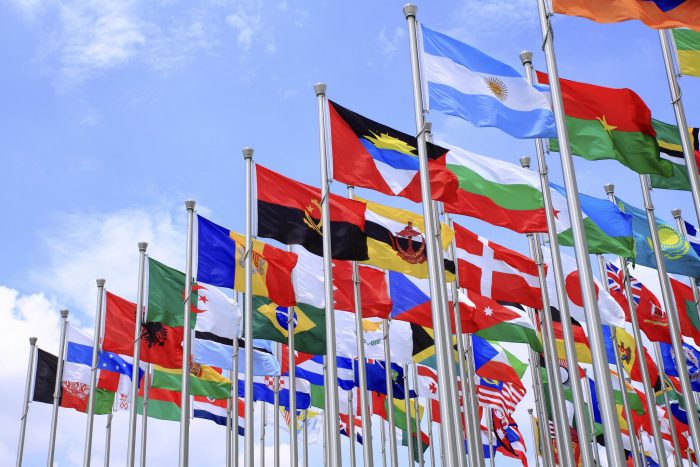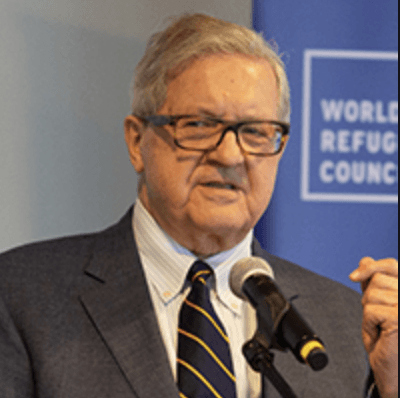By Lloyd Axworthy and Allan Rock
This article was first published in Diplomat Magazine.
The World Bank estimates that each year between US $20 billion and US $40 billion in development assistance is stolen by corrupt officials. Such grand corruption undermines support in the West for foreign aid, while at the same time defeating its very purpose. Those who steal the money cheat the intended beneficiaries out of the better life it could have provided. And all the while, corrupt leaders, focused on their own enrichment, neglect or ignore their people’s needs.
In our work with the World Refugee and Migration Council (WRMC), we have seen for ourselves the terrible consequences of grand corruption in places where money intended for humanitarian relief is siphoned off before it can be spent to provide the dispossessed with food, shelter and health care.
Addressing grand corruption is more urgent today than ever, as developed countries prepare significant aid packages to help lower-income states manage the devastating economic consequences of the global pandemic.
There is no shortage of laws to prohibit grand corruption. What is lacking is enforcement. Integrity Initiatives International (an American NGO led by U.S. senior Boston federal judge Mark Wolf) proposes the creation of an International Anti-Corruption Court (IACC) to hold offenders to account. The IACC would operate on the principle of complementarity, only exercising its authority if a country is unwilling or unable to prosecute corrupt officials itself.
We have seen for ourselves the terrible consequences of grand corruption in places where money intended for humanitarian relief is siphoned off before it can be spent to provide the dispossessed with food, shelter and health care.
Some argue that the IACC would be hamstrung if corrupt states refuse to join it. But kleptocrats do not keep their stolen money at home. As long as the IACC member states include financial hubs such as the U.K., Switzerland and Singapore, and places like Canada, where the corrupt like to store their cash, the IACC would have full jurisdiction to investigate and prosecute when sums are deposited in those jurisdictions.
Creating a new international body won’t be easy in today’s geopolitical climate. But there’s precedent for overcoming resistance from those stubbornly opposed to progressive change. It’s found in Canada’s experience with the Ottawa Treaty, which banned landmines. When the process bogged down within the United Nations’ system, Canada worked outside the UN, pulling together a coalition of NGOs and like-minded states. Then, once our advocacy and political action in capitals achieved a critical mass of support, we convened the Ottawa meeting at which 121 countries signed the treaty. Only then, with the accord a “done deal,” did we move the process back under UN auspices for ratification. Today, 164 states are party to the Ottawa Treaty, which has saved countless lives and limbs.
There is no reason the same strategy can’t work with the International Anti-Corruption Court, and no reason why Canada can’t, once again, lead the way.
And let’s propose that once created, the IACC should be headquartered here in Canada. Our deep commitment to the rule of law, our faithful support for the international order, and the global reputation that our courts enjoy for excellence and impartiality, make Canada an ideal home for the new court.
The WRMC, recognizing the connection among corrupt leaders, bad governance and forced displacement, supports the creation of the IACC. The WRMC has a related proposal, now adopted by the government of Canada, that will allow the government to go beyond merely freezing the assets that corrupt officials deposit in Canada, and to confiscate those assets. The proceeds can then be redirected to assist, for example, those forcibly displaced as a result of bad governance by the corrupt regime.
With so much at stake, and with vast sums for post-pandemic recovery about to flow to vulnerable governments, the time has come to create the IACC, to end impunity for grand corruption, and to address the harm it does to so many of the voiceless worldwide
Image credit: Flickr.com/Penn State (CC BY-NC-ND 2.0)


